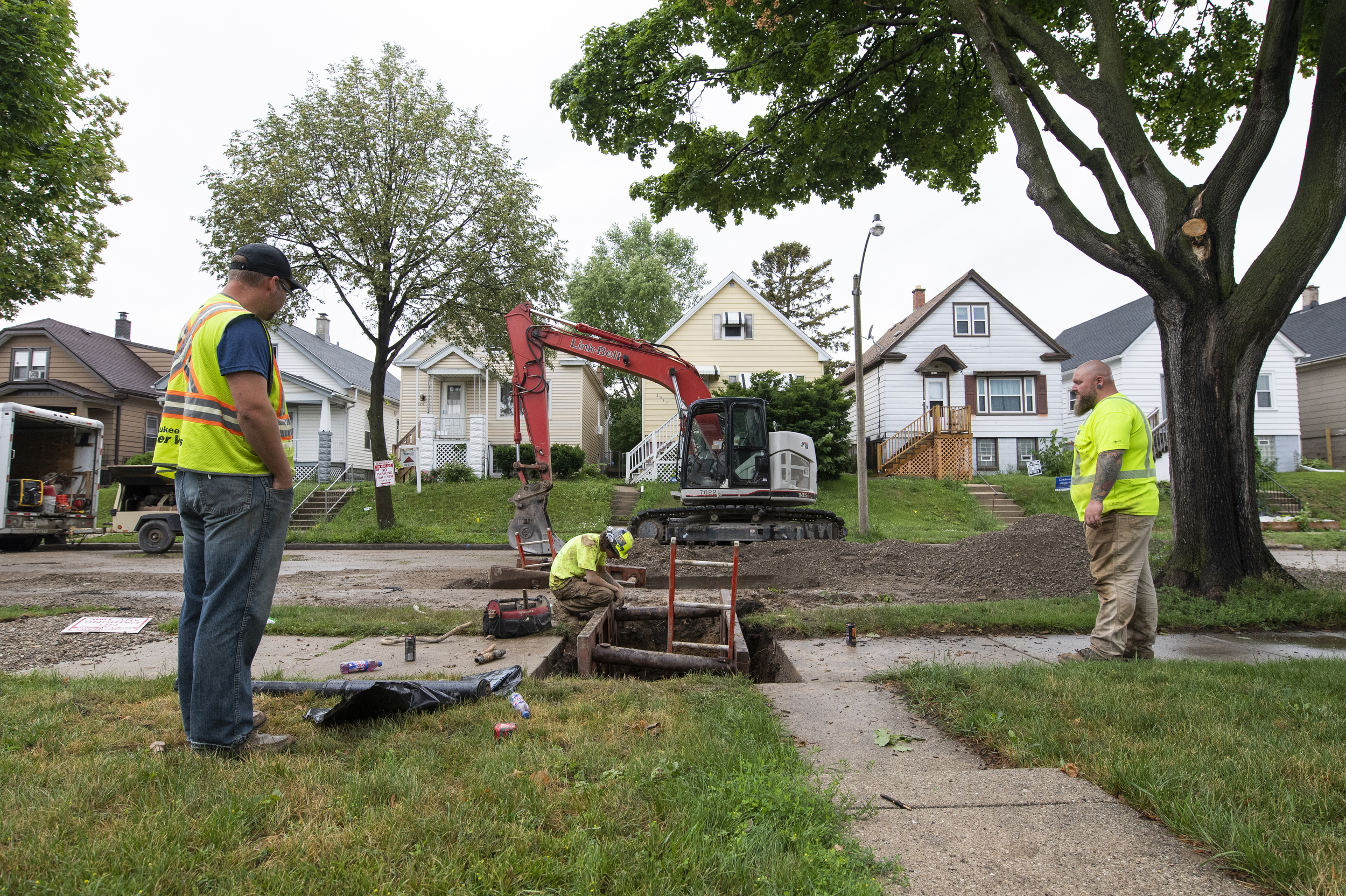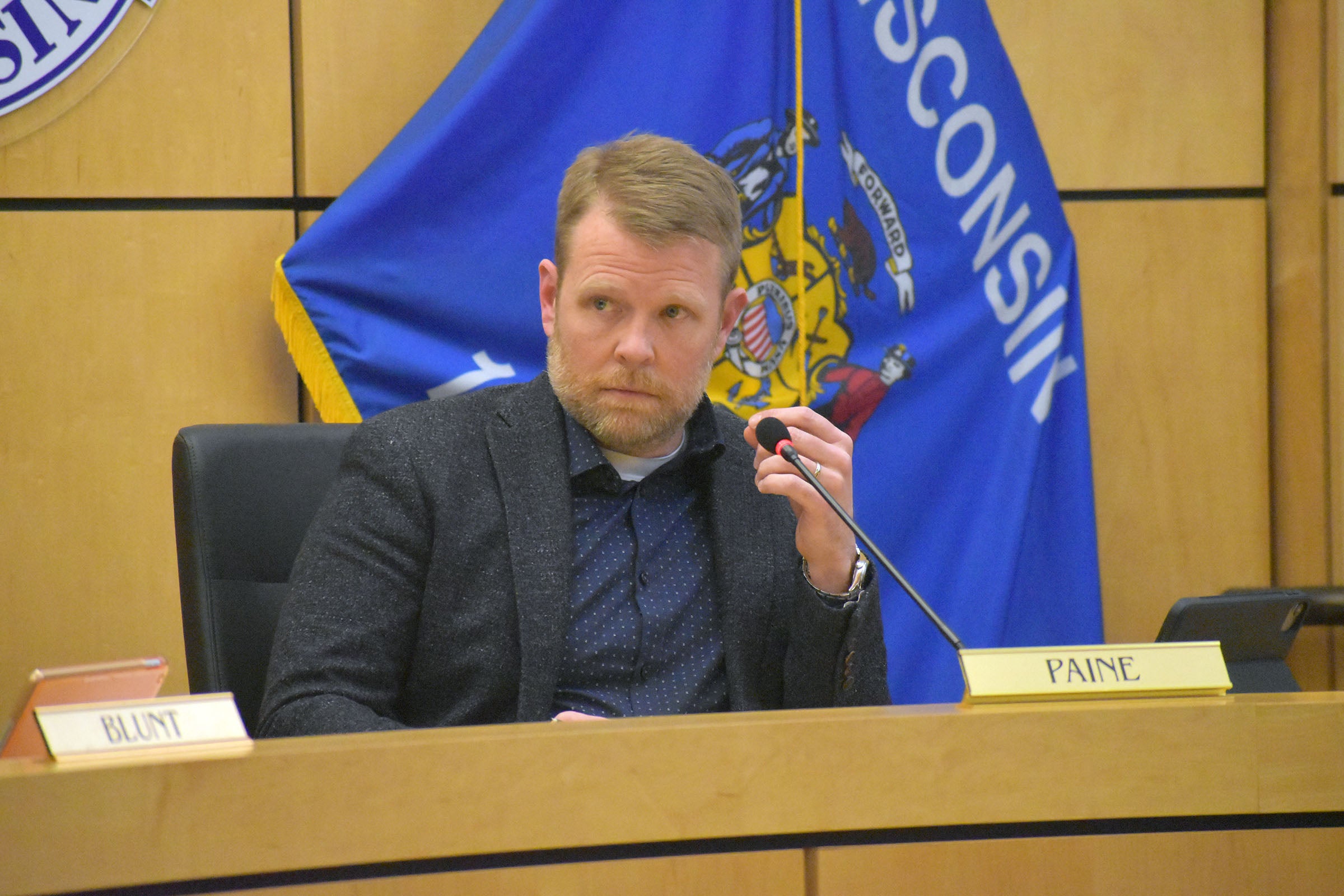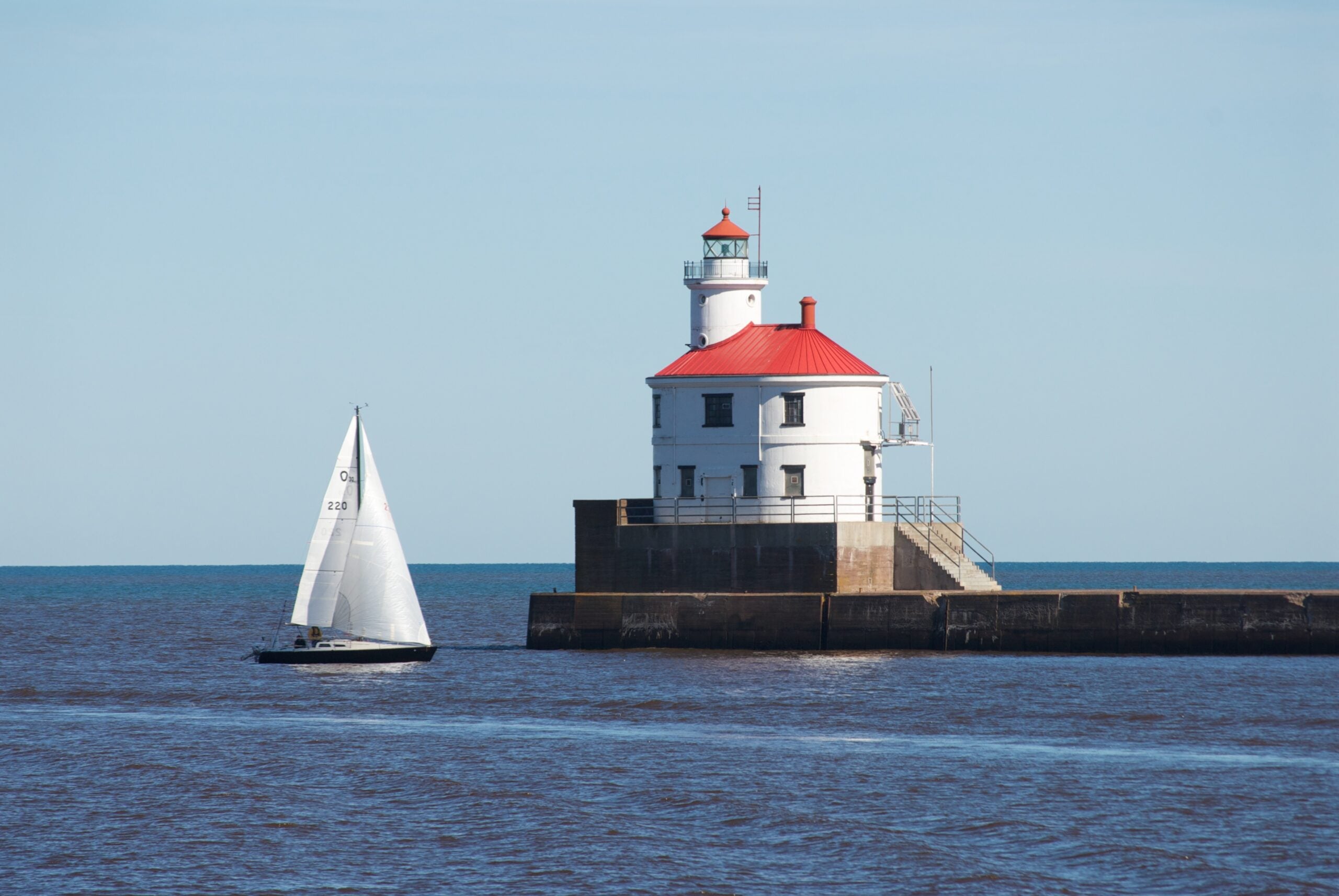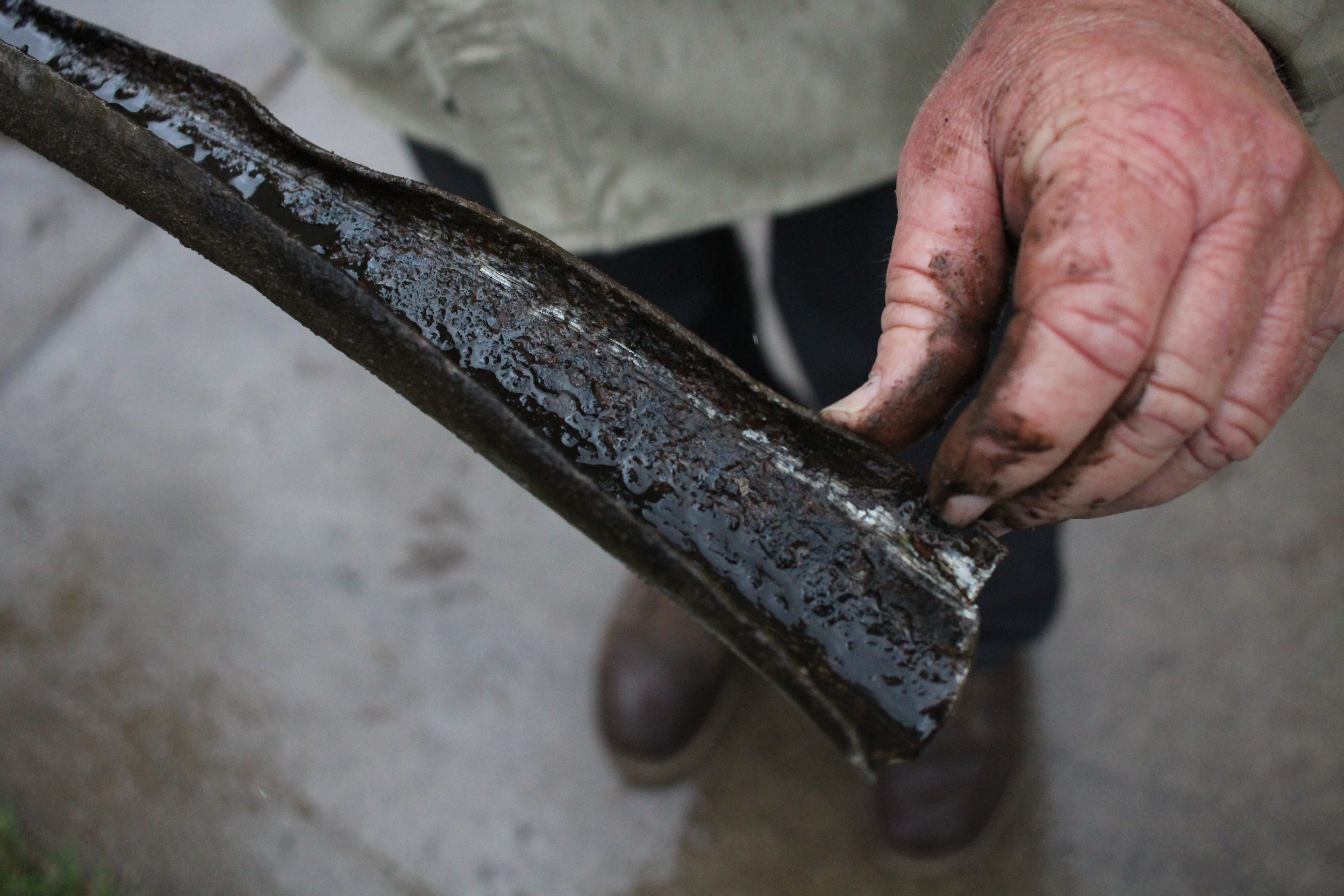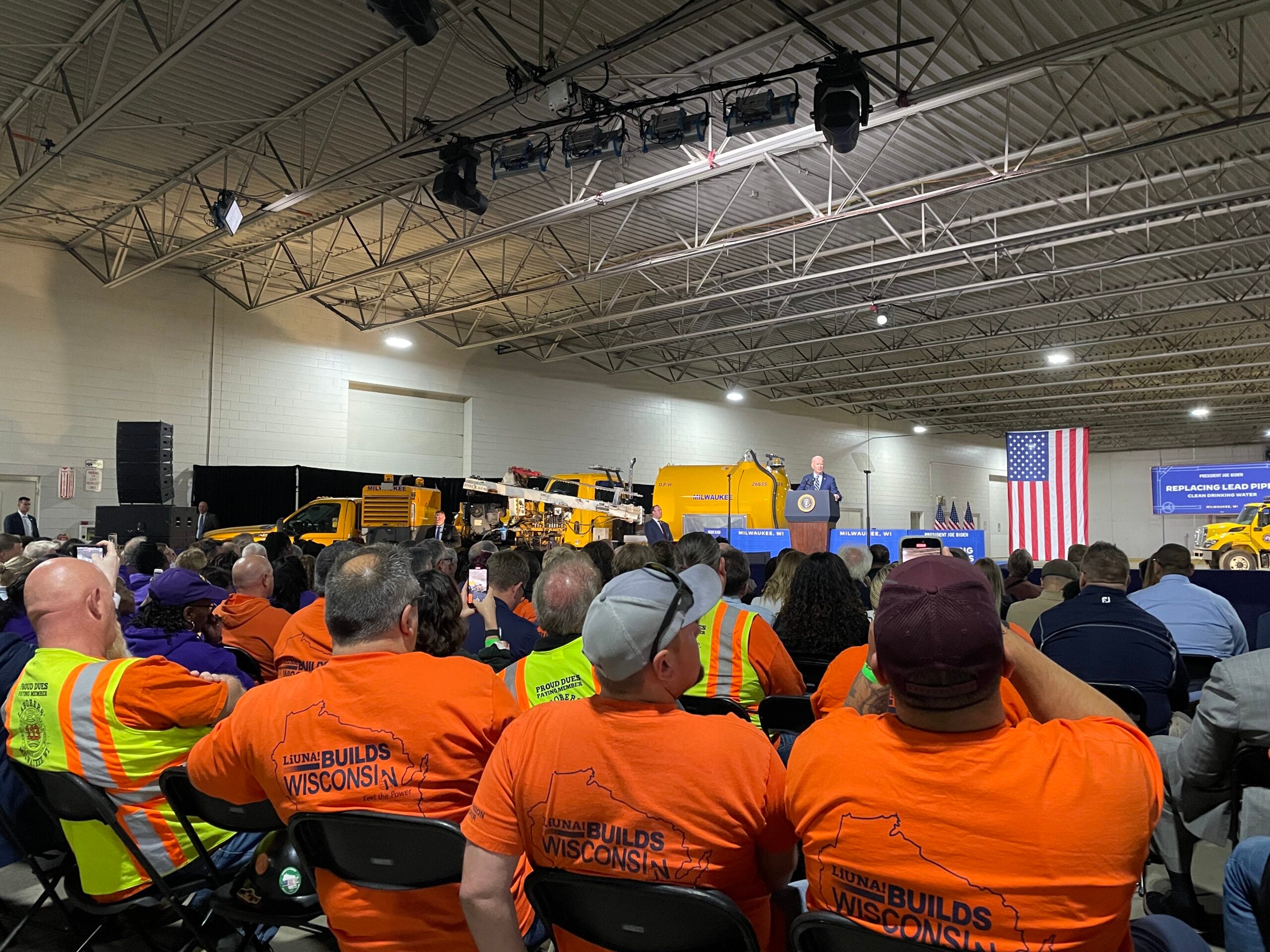Communities throughout the country are working to eliminate lead pipes, and homeowners may be eligible for federal assistance for replacing these pipes leading to their homes, which is deemed their responsibility.
But not in Superior, due to a quirk in state law that forbids that practice when a private water utility is involved. That includes Superior Water, Light & Power, which is the only private water utility statewide. The company and local officials are pushing to change the law in order to accelerate lead pipe replacement.
Joscy Skandel of Superior Water, Light & Power spoke with WPR’s Robin Washington on “Morning Edition” about the effort to change the law.
Stay informed on the latest news
Sign up for WPR’s email newsletter.
This transcript has been edited for brevity and clarity.
Robin Washington: How prevalent are lead pipes in Superior?
Joscy Skandel: We are currently working on an inventory that is gathering that information. On the utility side, we estimate approximately 40 percent of our pipes are still lead.
On the private side, that’s still unknown. We don’t think it’s going to be as high as we have on the utility side, but we’re currently working on that information.
RW: Some pipes are the utility’s responsibility and others are the responsibility of the homeowners, correct?
JS: Yes. There’s a portion of the service that goes up to what we call a curb stop, which is where we can shut the water off if there’s ever a need to do so. And from the curb stop all the way into the homeowner’s house is what the citizen would be responsible for replacing.
RW: What level of assistance may homeowners get elsewhere, except in Superior because of this quirk?
JS: The Environmental Protection Agency has allocated dollars to each state for customers to receive at least half of the portion of the service that they’d have to replace.
They call it a principal-forgiveness portion, so it’s almost like a grant or the ability to forgive half of the cost of replacing that service.
RW: But not in Superior. So tell us about that.
JS: There is a state statute that prohibits any private water utility, or private owner of a community water system — it restricts the funding that can come through the EPA and ultimately through the state Department of Natural Resources to loan only.
We have the ability to reach out to the DNR and say, can we as a utility get loans for our customers so that they don’t have to come up with the money to replace these services up front, but we don’t have the ability to provide that principal forgiveness portion due to the state statute that’s currently in place.
RW: You’ve made the request to state officials. Your pitch was part of the program at the Superior Days advocacy event in April. What was the response from legislators and the administration?
JS: Overall the response has been overwhelmingly supportive. We understand that this state statue was put in place for a reason, but it’s really not doing the job that it was intended to do.
We hope that it’s really a straightforward change in the state statute to allow us to receive the funding that ultimately goes straight to customers to help the people that need it.
RW: Your Superior Days colleagues often bring products from our area with them to Madison. Have you thought about bringing down some water?
JS: We’ll be back down to Madison next year. We don’t actually bottle our water at Superior Water, Light & Power, but if we could bring some fresh samples of the high quality water that we have, I think that would be great.
If you have an idea about something in northern Wisconsin you think we should talk about on “Morning Edition,” send it to us at northern@wpr.org.
